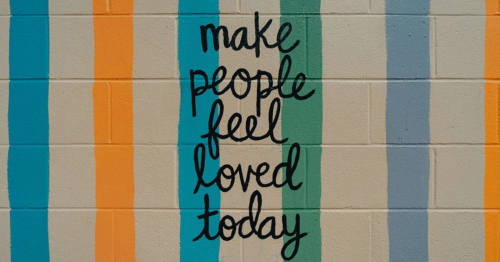
Table of Contents
What You Need to Know About Suicide, According to Charlie Health Clinicians
Written By: Charlie Health Editorial Team

Clinically Reviewed By: Dr. Don Gasparini
September 19, 2023
4 min.
Suicide is tragically common among young people yet remains stigmatized. Here, several Charlie Health clinicians separate myth from fact and explain what you need to know about suicide.
Learn more about our Clinical Review Process
Table of Contents
Trigger warning: Suicide. If you’re experiencing suicidal thoughts or are in danger of harming yourself, this is a mental health emergency. Contact The Suicide & Crisis Lifeline 24/7 by calling or texting 988.
Suicide is the second leading cause of death for adolescents and young people in the U.S., yet suicidality remains mired in stigma. To separate myth from fact, we asked several Charlie Health clinicians what they wish everybody knew about suicide—a topic at the heart of their life-saving work with Charlie Health’s virtual Intensive Outpatient Program (IOP). Read on for these behavioral health experts’ guidance on self-harm, strategies for discussing suicide, and insights on community support, all particularly resonant during Suicide Prevention and Awareness Month. Here’s what you need to know about suicide.
Talking about suicide doesn’t cause suicide
In fact, all of the Charlie Health clinicians we spoke with said that the opposite is true: talking about suicide can reduce suicidal ideation and help people get the mental health support they need—points substantiated by research. Charlie Health Clinical Director, Sam Adams, said that when people share their thoughts of suicide, it signifies trust. Failing to respond, on the other hand, can be harmful.
“We want people to talk about suicide because if they talk about it, we have a better chance of helping them,” said Adams. “Suicide prevention starts with talking about suicide.”
You need to learn how to discuss suicide
Since talking about suicide is an essential form of suicide prevention, the Charlie Health clinicians we spoke with recommend that everybody (especially parents, guardians, and those working with young people) learn how to discuss suicide. Even though it can be scary, Charlie Health Clinical Supervisor Tracye Freeman Valentine encouraged people to discuss suicide in plain terms.
“It’s okay to ask a person if they plan to die or end their life. This actually allows that person the space to feel safe,” she said. For more practical tips on talking with someone who may be suicidal, check out the Charlie Health Clinical Team’s step-by-step guide on “How To Talk About Suicide.”
Suicide is not a sign of weakness
Like many mental health conditions, suicide is stigmatized, and people wrongly connect it to personal shortcomings. “Experiencing suicidal ideation is not shameful, selfish, or cowardly,” said Rebecca Holland, a Psychiatric Mental Health Nurse Practitioner at Charlie Health. Instead, Holland urges people to consider the role systemic and social factors, namely isolation, play in suicide. “Suicidal ideation is one of the loneliest experiences of a lifetime,” she said. “Talking about suicide can lift this veil of loneliness and show that someone is there when it feels like no one is.”
People may self-harm without suicidal intent
Self-harm is not always a sign that someone is planning to commit suicide, meaning it’s essential to ask someone why they are self-harming, said Freeman Valentine. “Sometimes a person who self-harms may have the intent of redirecting pain or anger, and sometimes that person may want to end their life,” she explained. “One must ask the intent. Interventions and communication are key.” Read this blog for tips on how to navigate a conversation about self-harm with care and compassion.
There are ways to manage suicidal ideation at home
There is a spectrum of risk associated with suicidal ideation, and it’s proven that not all people with thoughts of suicide want to complete suicide. “Suicidal thoughts don’t always mean that someone needs to go to the hospital,” said Adams. Decisions about treatment, though, should be made with the support of a licensed mental health professional.
“A lot of times, mental health professionals are able to plan with clients on ways to stay safe and use their support systems as a resource to continue to work on treatment,” Adams added.

Are you looking for a higher level of mental healthcare?
Charlie Health’s virtual IOP offers therapy multiple times per week to support your mental health needs.
Know when to get someone emergency support
That being said, the clinicians we spoke to all said that if someone with suicidal thoughts is in danger of harming themselves, they should receive treatment immediately. “It is important that safety comes first,” said Freeman Valentine. One way to get support for this kind of mental health emergency is to contact The Suicide & Crisis Lifeline 24/7 by calling or texting 988. People who are actively suicidal may also want to call 911 or go to an emergency room for immediate care.
Those with a suicidal loved one deserve support, too
Supporting someone in crisis is essential, but can also be overwhelming. “Many times, we overlook the family and loved ones who have been thrown into emotional chaos by experiencing the fact that a loved one wants to end their life,” said Freeman Valentine. “It leads to their own anxiety, feelings of uncertainty, and fear of losing that loved one.”
If you are supporting a loved one dealing with thoughts of suicide, your mental health matters, and it’s important to seek therapy and other forms of support.
How Charlie Health can help those struggling with suicide
If you or a loved one are struggling with thoughts of suicide, Charlie Health is here to help. Our virtual Intensive Outpatient Program (IOP) combines peer groups, individual therapy, and family therapy for teens and young adults who need more than once-weekly mental health treatment—including those struggling with suicidal ideation and those who have survived suicide attempts. Charlie Health’s compassionate mental health professionals are here to listen to your story, understand your needs, and match you with an appropriate treatment plan. Fill out our short form to get started today.




